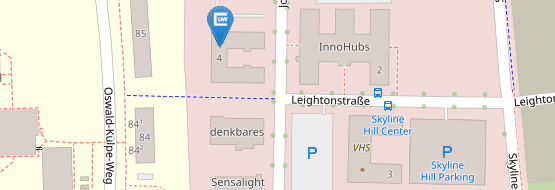start@JMU | Offers for newly appointed professors
As a newly appointed professor, you may be in a phase of reorientation and/or a change of role in your first independent or new professorship at JMU. You may therefore have concerns that you would like to discuss and address in a dialogue and, if necessary, coaching. We would like to offer you this forum. Completely confidential and tailored to your needs. You are completely free to decide which questions and/or challenges you would like to address without any predetermined focus. Together we will find the right tool for this.
1. Welcome Talk
You joined the University of Würzburg last year. We hope that your first weeks and months in Würzburg have been positive and that you have settled into your new role well. We - the University of Würzburg's Professional Development department - would like to support you in your work and act as a guide and partner.
For this reason, we would like to introduce ourselves to you personally, show you how we can support you in your work and, of course, learn from you what has already gone well, what is not yet running optimally and what the university as an employer can pay even more attention to in the future. We may not always be the right contact for your concerns, but we usually know the relevant people and channels and are happy to support you.
We are happy to visit you in your office for around 30 minutes or to arrange a Zoom appointment with you. You are welcome to choose a suitable slot - we will regularly send you possible appointments. Can't find a suitable date? Then please contact us directly: Krischan Brandl
We have created a website especially for new appointees so that you can get a rough idea before the meetinggo.uniwue.de/neuberufene
2. Coaching for newly appointed professor
The coaching takes place between you and your coach and is confidential at all times. There is no feedback to the university at any time. Confidentiality is our top priority here. You decide whether you would like to work internally with one of the trained coaches in Professional Development or with an external coach. The meetings take place at a location of your choice , either on or off campus or digitally .
Your coach will support you in activating your resources and potential in order to develop customised solutions for your concerns. Various coaching tools provide an effective framework for your individual reflection and search process . You receive impulses to perceive your behaviour more precisely, to understand it and, if necessary, to change it. You clarify goals, define the necessary steps to achieve them, try them out in practice and adjust them again during coaching.
The journey is often as instructive as the achievement of the goal itself.
In a new appointee coaching session you can
- Clarify your professional goals in your new role.
- realistically planyour own aspirations and goals.
- deal with the challenges of your everyday working life .
- Discuss the demands and expectations of your employees in the context of supervision and management .
- Analyseconflict and problem situations.
- Critically reflect onrole expectations and find a constructive way of dealing with them.
- continuously pursue a personal development goal .
STEP 1: You accept a call, come to JMU and are supported in this process by our Welcome Centre. Once you have arrived, you will be contacted by staff from the Academic Professional Development Centre and asked to meet in person to get to know each other.
STEP 2: In a personal initial meeting , we will introduce you to the support JMU can offer you in the following period. We will present the start@JMU coaching programme to you in detail. If you are interested, we will work together to identify topics that you would like to work on as part of a coaching programme.
STEP 3: Based on the information from the initial meeting, we will look for a suitable internal or external coach for you and put you in touch. Only when both sides have the feeling that working together can work do you start the coaching. If the chemistry is still not right, we will start the search again.
STEP 4: You now organise the actual coaching process completely independently and individually. You decide when and where you will meet and define the topics and goals that are important to you with your coach. This process and its content are completely confidential between you and your coach. At no time will information about this process be passed on to other parts of the university.
STEP 5: At the end of the process, we would like to hear from you that the coaching has (initially) been completed and we are interested to know whether your goals have been achieved through the coaching or whether and what further needs exist.
3. Collegial case discussions
A collegial case discussion is a professional exchange between colleagues that is
- is professionally moderated ,
- takes place in a structured form and
- works on specific cases
- with a high degree of needs-orientation .
You contribute your own professional, didactic and organisational experience and benefit from the experience of your peers. This allows different perspectives (research, teaching, committee work, leadership) to flow together in the case discussion. They operate in highly complex institutional, political and personal structures. A collegial case discussion offers space to organise this complexity and make different perspectives visible.
Unlike in hierarchical constellations (e.g. superiors vs. employees), you discuss on a comparable level. This facilitates openness and promotes trust because there are no formal relationships of dependency. Thanks to their own experience with self-organisation, project management and institutional policy, other professors usually contribute concrete, pragmatic ideas for solutions - which increases the likelihood of the approaches being implemented.
Here you will find a short video (4 minutes) on how a collegial case discussion works:to the video
Please contact Krischan Brandl at any time if you are interested in a collegial case discussion; we will also keep you regularly informed about current dates by e-mail.



